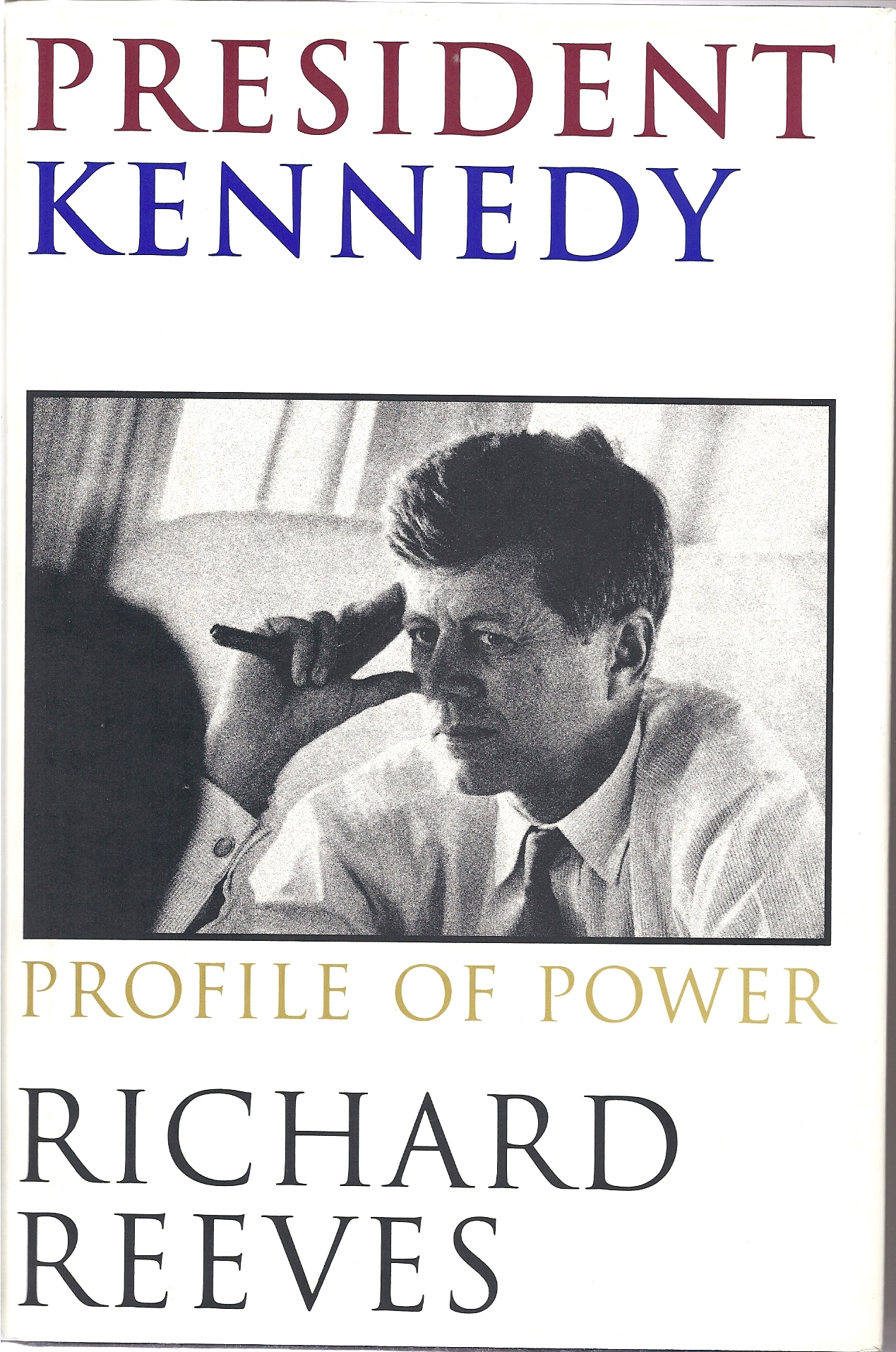 President Kennedy: Profile of Power, by Richard Reeves, Simon & Schuster, 1993.
by Matthew Raley
President Kennedy: Profile of Power, by Richard Reeves, Simon & Schuster, 1993.
by Matthew Raley
Recently, anticipating an Obama administration, I reread Richard Reeves' narrative of John Kennedy's presidency, and was engrossed.
Barack Obama's ascent provided the excuse I'd been wanting to return to this book because Kennedy is the nearest analogy to the man who will be the 44th president. Just for starters, Kennedy was a barrier-breaker, as the first Catholic to occupy the White House, and he was young.
But there are more significant parallels. JFK had no executive experience, and was the last sitting U.S. senator to win the presidency. He also represented generational change, and a break with ideological passions in favor of a sophisticated pragmatism. Indeed, JFK was the last president to have the sheen of academic and writerly intellectual seriousness.
Does the Kennedy administration, I wonder, suggest anything to watch as Obama takes over?
First, a few outstanding features of Reeves' book, Obama aside.
Reeves is the master of the taut, high-impact vignette. Kennedy was pondering what to do about renewed Soviet atmospheric nuclear testing. Should the U.S. resume atmospheric testing too? He asked his science adviser, Jerome Wiesner, how radioactive fallout gets to the earth (p 227).
"The clouds are washed out by rain," answered Wiesner.
Kennedy looked out through the French doors into the garden. It was a rainy day and he asked: "You mean it's in the rain out there?"
"Yes," Wiesner said. He stood, awkwardly, waiting. Kennedy did not speak for a long time.
Reeves also conveys the private impact on national leaders of events like the Cuban missile crisis. His understated portrayal gains power from the right details at the right moments. Mike Mansfield, the Senate Majority Leader, left the White House after learning that millions could be dead within hours in a nuclear exchange (p 393). The senator
called his wife, asking her to meet him at National Airport. Mansfield wanted to go home to Montana, and he told his wife there was something he wanted to tell her involving Kennedy. When the Mansfields landed at Billings later that day, there were soldiers patrolling the runways and the terminal -- as there were at other airports all across the country.
The Kennedy assassination (which I hope never becomes a parallel between the 35th and 44th presidents) gains drama and tension as Reeves' narrative rolls on. The dates at the beginning of each chapter prompt the reader to ask, "What if JFK knew he only had this much time?"
And there are chilling moments close to the end.
On November 2, 1963, JFK sat down to a meeting to manage the coup against Ngo Dinh Diem, the South Vietnamese president. An aide walked into the meeting with a cable reporting that Diem had been killed in the coup (p 649). "[The aide] handed it to the President, who looked at it, stood up, and rushed from the room without a word, looking pale and shaken."
In Fort Worth on November 22nd, surveying the setting of a political rally he would attend before flying to Dallas, Kennedy said to an aide (p 661), "Look at that platform. With all these buildings around it, the Secret Service couldn't stop someone who really wanted to get you."
My reading raised one issue that I will be watching closely in the Obama administration.
JFK's view of military power and foreign policy was primarily political. How would the United States be perceived around the world, and how would JFK be perceived at home?
During the Bay of Pigs fiasco, Kennedy refused to send American air support to save the ex-patriot invasion force. He wanted to preserve plausible deniability of American involvement.
Reeves writes (p 157) that Kennedy, meeting Nikita Khruschev in Vienna in 1961, wanted to "talk to him politician-to-politician about the dangers of military miscalculation in a nuclear world. The political systems that produced the two leaders were different, but they were in the same business and Kennedy had no doubt they would understand each other."
But Kennedy was unprepared for the ideological strength of the Soviet leader. When asked by James Reston how the summit had gone, Kennedy replied (p 172), "Worst thing in my life. He savaged me."
The pattern Reeves shows in Kennedy's decision-making is one of trying to preserve his room for maneuver and his deniability until the last possible moment. This was his downfall in the Bay of Pigs, it persisted during the Cuban missile crisis, and remain characteristic during the coup against Diem in the last month of Kennedy's life.
Of the impending coup, JFK cabled Henry Cabot Lodge, the ambassador to South Vietnam, "We are particularly concerned about hazard that an unsuccessful coup, however carefully we avoid direct entanglement, will be laid at our door by public opinion almost everywhere."
Barack Obama is not an ideological, but a political creature. He balances, he soothes, he preserves options.
This is good in the sense that Obama will probably not turn out to be the radical leftist some fear. But in foreign policy, where uses of military power have to be concerned less with appearances than with targets and results, and where power needs to be used without a guilty conscience, Obama's penchant for equivocation could be his undoing.
After the Bay of Pigs humiliation, Dwight Eisenhower visited Kennedy at Camp David, and gave him the dressing-down of his life (pp 102-103). "How could you possibly have kept from the world any knowledge that the United States had been involved?" Ike said. "I believe there is only one thing to do when you go into this kind of thing, it must be a success."
But we don't have the equivalent of a former president Eisenhower anymore.
